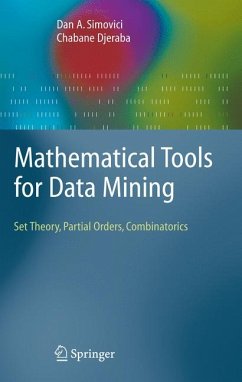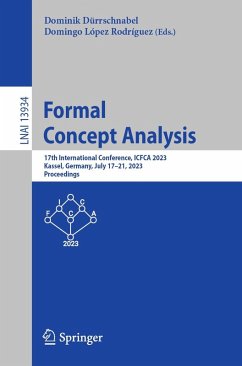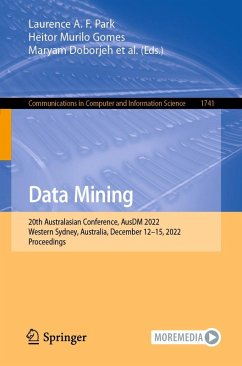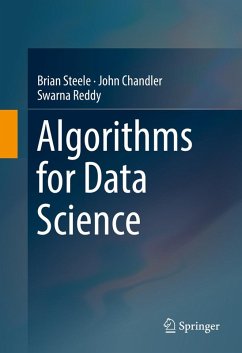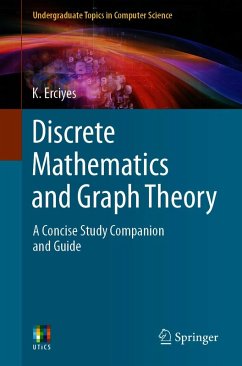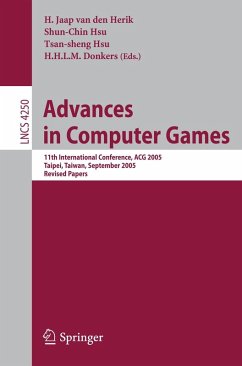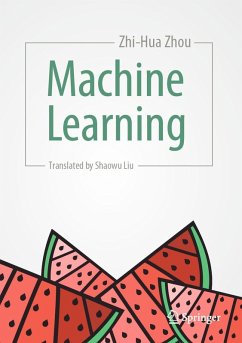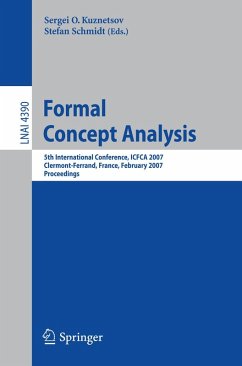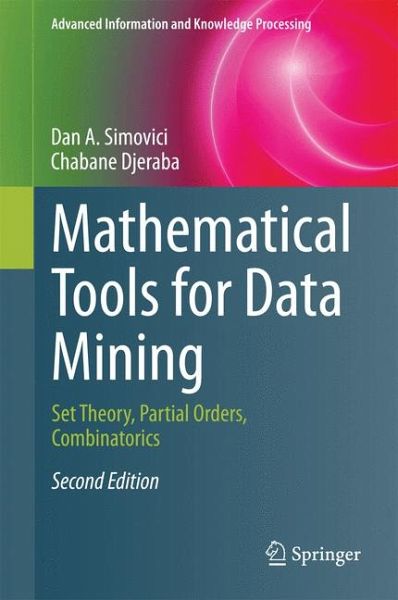
Mathematical Tools for Data Mining (eBook, PDF)
Set Theory, Partial Orders, Combinatorics
Versandkostenfrei!
Sofort per Download lieferbar
96,95 €
inkl. MwSt.
Weitere Ausgaben:

PAYBACK Punkte
48 °P sammeln!
Data mining essentially relies on several mathematical disciplines, many of which are presented in this second edition of this book. Topics include partially ordered sets, combinatorics, general topology, metric spaces, linear spaces, graph theory. To motivate the reader a significant number of applications of these mathematical tools are included ranging from association rules, clustering algorithms, classification, data constraints, logical data analysis, etc. The book is intended as a reference for researchers and graduate students. The current edition is a significant expansion of the firs...
Data mining essentially relies on several mathematical disciplines, many of which are presented in this second edition of this book. Topics include partially ordered sets, combinatorics, general topology, metric spaces, linear spaces, graph theory. To motivate the reader a significant number of applications of these mathematical tools are included ranging from association rules, clustering algorithms, classification, data constraints, logical data analysis, etc. The book is intended as a reference for researchers and graduate students. The current edition is a significant expansion of the first edition. We strived to make the book self-contained and only a general knowledge of mathematics is required. More than 700 exercises are included and they form an integral part of the material. Many exercises are in reality supplemental material and their solutions are included.
Dieser Download kann aus rechtlichen Gründen nur mit Rechnungsadresse in A, B, BG, CY, CZ, D, DK, EW, E, FIN, F, GR, HR, H, IRL, I, LT, L, LR, M, NL, PL, P, R, S, SLO, SK ausgeliefert werden.




